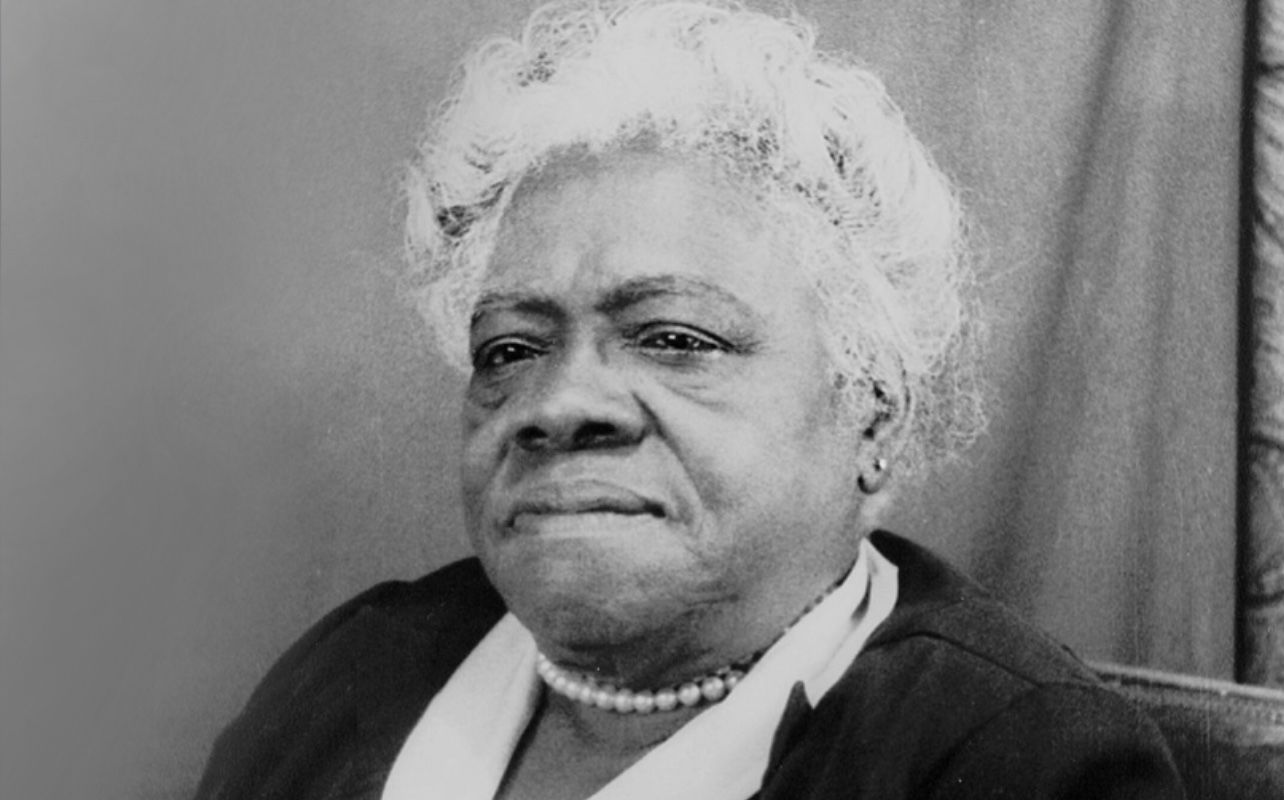
August 8, 2024
Step Into The Legacy Of Mary McLeod Bethune In New NMAAHC Exhibit
NMAAHC's exhibit features more than 100 images and artifacts highlighting Bethune, NCNW, and other Black women activists.
The National Museum of African American History and Culture (NMAAHC) is honoring civil and women’s rights icon Mary McLeod Bethune with an ongoing exhibit, “Forces for Change: Mary McLeod Bethune and Black Women’s Activism.”
NMAAHC officially opened the exhibit on July 19, welcoming museum visitors to explore the life and legacy of the renowned Black educator who founded the National Council of Negro Women (NCNW) in 1935. According to the museum, the gallery located on Level 3 features 75 images, 35 artifacts, a multimedia film, and an interactive engagement. Guests come face-to-face with an 8-foot-tall plaster statue of Bethune holding a Black rose. She’s dressed in a graduation cap, stole, and gown; heels and a pearl necklace and earrings finish the ensemble.
Born on July 10, 1875, in South Carolina, Bethune was the youngest of 17 children to parents Samuel and Patsy McLeod. According to the National Women’s History Museum, she studied at Scotia Seminary, a North Carolina boarding school. After graduating in 1894, she enlisted in Dwight Moody’s Institute for Home and Foreign Missions in Chicago. Seeking sponsorship as a missionary led her to become an educator after several churches dismissed her.
She moved to Palatka, Florida, after marrying educator Albertus Bethune and conceiving their son, in 1899. However, a divorce in 1904 led Bethune to establish her own boarding school, the Daytona Beach Literary and Industrial School for Training Negro Girls, which later became a college and merged with an all-male institute. The college is presently known as Daytona’s private historically Black university, Bethune Cookman.
In her activism for racial and gender equality, Bethune has greatly contributed to the advancement of women and the Black community. As the founder of NCNW, she created an organization committed to the advocacy and empowerment of women of African descent. With over 330 campuses connecting over two million people, the nonprofit organization continues to provide resources on education, entrepreneurship, financial literacy, healthcare and social justice.
In addition to her organization, Bethune has served in leadership roles for the National Association of Colored Women’s Clubs, the Negro Affairs of the National Youth Administration, former president Franklin D. Roosevelt’s unofficial “black cabinet,” and the National Association for the Advancement of Colored Persons (NAACP).
She also led voter’s registration drives, fought to end lynching, created a racially integrated Women’s Army Corps, and was the only Black woman at the United Nations’ founding conference in 1945. In a historic unveiling ceremony in 2022, Bethune became the first Black American to have a state statue in the National Statuary Hall at the U.S. Capitol, replacing Confederate States Army general Edmund Kirby Smith.
Along with NMAAHC’s reimagining of the “Bethune Room,” the gallery highlights other Black women activists across time, including Stacey Abrams and Children’s Defense Fund founder Marian Wright Edelman.